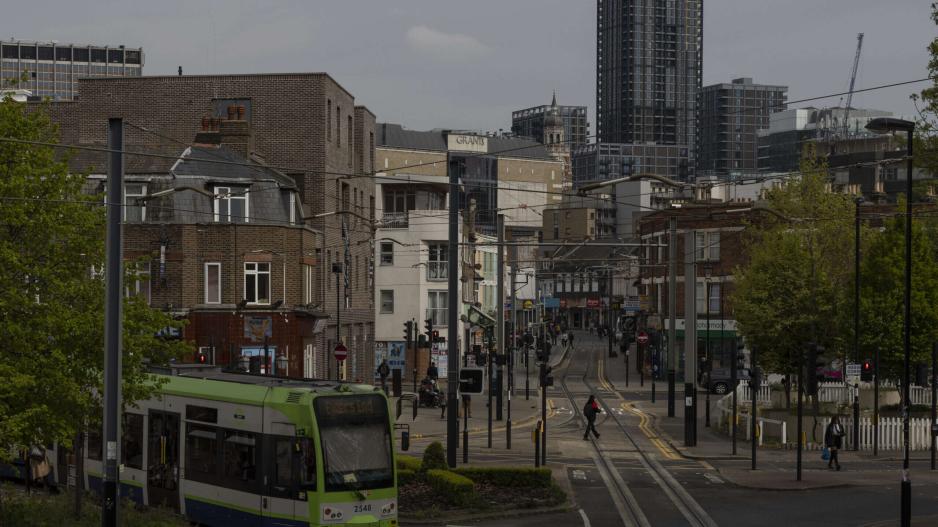Over Half of British Councils at Risk of Bankruptcy
So Far, Proceedings for the Activation of Bankruptcy Processes Have Already Begun for Eight British Councils, and This Is Only the Beginning of a Real Wave of Bankruptcies
Just weeks before the local elections in the UK, 51% of the country's councils are on the verge of bankruptcy, according to the Local Government Information Unit (LGiU).
So far, proceedings for the activation of bankruptcy processes have already begun for eight British councils, and this is only the beginning of a real wave of bankruptcies. Thirteen councils recently failed to make their payments as council funding has been reduced by 40%, necessitating a large-scale "rescue," as estimated by LGiU.
Among the councils that have already requested a rescue or are about to do so are Birmingham, Nottingham, Slough, and the London area of Croydon. These councils have submitted requests for "extraordinary financial support" to the government due to their inability to balance their accounts.
Technically, UK councils do not have a bankruptcy mechanism. To declare an inability to cover their debts and current expenses, British councils resort to "Article 114," which legally binds them to block any new expenditure for 21 days, during which they must present a new budget. Subsequently, if the government accepts these terms, it can take over the collection of extraordinary revenue from property sales or even resort to "extraordinary financial assistance."
Faced with this wave of bankruptcies, especially in the next term of municipal councils, Downing Street will need to undertake a large-scale rescue program. The Local Government Association (LGA) explains that these state "rescues" have already created a cumulative "gap" of £6.4 billion since 2020, increasing at a rate of about £1.4 billion annually.
Jonathan Carr-West, CEO of LGiU, emphasized that the latest research on councils concluded that "the financial situation of the councils is desperate." Until now, he notes, councils have been maintained mainly through "cuts, borrowing, and reserves."
However, inflation and high-interest rates have significantly accelerated this structural problem. Currently, councils that have already exploited "Article 114" are selling assets to fill gaps, and the majority are seeking access to other revenue sources.
The origins of the crisis in British councils go back several decades. Decisions made by former Prime Minister Margaret Thatcher became time bombs that exploded long after her departure.
Thatcher made changes to the local tax system, whereby each council imposed a uniform tax on all its citizens, regardless of their income, house size, or any other criterion. This reform had indeed "set fire" to the streets of Scotland, plunging the Conservative Party.
Thatcher's successor, John Major, changed the tax system, imposing a tax based on house value. However, in his haste to reform the system implemented by Thatcher, Major's law left many loopholes. On one hand, the house valuation, which determines the tax to be collected, was based on 1991 values. House prices in many areas have skyrocketed, resulting in many homes now worth millions of pounds paying much lower taxes than due.
The arrival of David Cameron in Downing Street inaugurated a decade of austerity and cuts that hit councils hard. Public subsidies to councils were reduced by 40% to £28 billion in 2020. As a result, despite continuous increases in their taxes, municipal councils lost an average of 15% of their revenue between 2010 and 2022.

To avoid the bankruptcy of councils, the government of Prime Minister Rishi Sunak has approved numerous increases in local taxes, hoping to collect £64 billion this year, 6.5% more than last year. However, central government aid remains stuck at £28.6 billion, with an increase of only £600 million, which helps but does not correct the root of the problems.
A solution proposed is to make it more flexible for councils to access funding through market sales and large-scale property sales, thus avoiding bankruptcies.
However, a study by the LSE shows how solving this problem is not so simple. There is a clear risk that councils, in their desperation, will sell their assets for whatever they can get. "In this sense," the LSE points out, "selling assets is a short-term solution."
Northumbria University proposes four measures that must be implemented to avoid these mass bankruptcies: Greater access to taxes by municipal councils, a permanent state supply that gives councils greater negotiating power with the government, and a reevaluation of spending for the subsidies they receive.
The last proposal envisages the "transfer of national taxes to local entities," with 25% of the VAT collected going to councils, based on their needs.






